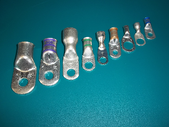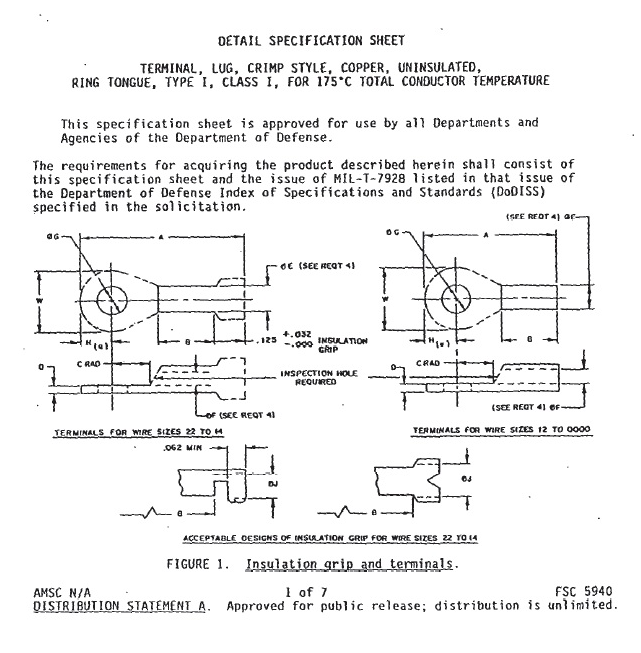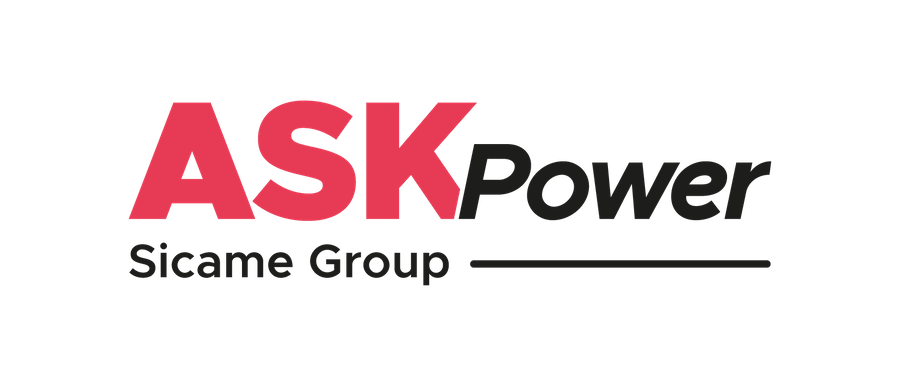Battery terminals have been produced in one form or another since the earliest automobiles manufactured. Generally, truck, off-road, and heavy-duty terminal lug applications designs originated around the time of WWII. As these were typically military applications, army rolling  stock and naval on-board power applications, vibration and corrosion intensive operating environments, as well as the costly and dangerous impact of over-heating and battery power failure, caused military designers to produce products with heavier wire barrel walls, thicker bolting tang surfaces, corrosion resistance, which performed to conductivity, resistance, and secureness values well above the traditional automotive products. Traditional automotive products utilized “strip type” raw materials which allowed cable and crimp sections to be exposed to the elements; during WWII and subsequent conflicts, when vehicles were transported en masse overseas, it became clear that these traditional connector designs would not meet the needs of the Tank and Automotive Command (TACOM).
stock and naval on-board power applications, vibration and corrosion intensive operating environments, as well as the costly and dangerous impact of over-heating and battery power failure, caused military designers to produce products with heavier wire barrel walls, thicker bolting tang surfaces, corrosion resistance, which performed to conductivity, resistance, and secureness values well above the traditional automotive products. Traditional automotive products utilized “strip type” raw materials which allowed cable and crimp sections to be exposed to the elements; during WWII and subsequent conflicts, when vehicles were transported en masse overseas, it became clear that these traditional connector designs would not meet the needs of the Tank and Automotive Command (TACOM).
 Since the release of MS20659 by TACOM around the time of WWII, heavy-duty truck battery terminals have all been closed barrel that is either tubular or drawn cylindrical raw material. The standards requirements by SAE International and the Underwriter’s Laboratories (UL 486 A) drew upon the gauge sizing and stud hole options of MS20659 (the MS20659 is governed by the military specification MIL-T-7928 which covers terminals, lugs, splices, conductors, and crimp style). European Manufacturers, like Klauke of Germany, began producing a version of the same parts, but with a substantially thicker barrel wall and tang thickness.
Since the release of MS20659 by TACOM around the time of WWII, heavy-duty truck battery terminals have all been closed barrel that is either tubular or drawn cylindrical raw material. The standards requirements by SAE International and the Underwriter’s Laboratories (UL 486 A) drew upon the gauge sizing and stud hole options of MS20659 (the MS20659 is governed by the military specification MIL-T-7928 which covers terminals, lugs, splices, conductors, and crimp style). European Manufacturers, like Klauke of Germany, began producing a version of the same parts, but with a substantially thicker barrel wall and tang thickness.

Products which are tested to MS20659’s structural heavy duty designs can meet UL’s 486A performance criteria. In many applications, we find engineers looking for performance at 50% or more beyond the UL test values. The super heavy duty line is no longer manufactured by Klauke but is available from ASK Products and significantly exceeds the UL test values.
For a full line of Military or Truck Terminal Lug Products, see our Military Products or Truck and Automotive Products.
Tin-plating, which superseded military cadmium dichromate for environmental reasons, has been used for corrosion resistance since the 1960’s. Tin-plating is governed by MIL-P which specifies plating thickness, chemistry, and salt-spray duration resistance.
Traditionally, truck battery terminals are applied to cable through either solder or crimp application. Solder, due to its lesser secureness performance and environmental concerns around lead, has become a far less frequently used application. Where solder is used, terminal lugs incorporate a “sight hole” or “peep hole” at the junction between the barrel end and transition top, which allows for inspecting the cable “butt up” (full insertion) as well as solder penetration.
application. Solder, due to its lesser secureness performance and environmental concerns around lead, has become a far less frequently used application. Where solder is used, terminal lugs incorporate a “sight hole” or “peep hole” at the junction between the barrel end and transition top, which allows for inspecting the cable “butt up” (full insertion) as well as solder penetration.
Crimp compression is typically performed with a source of compression and crimp dies which are sized to constrain the conductor and connector to maximal bonding. "Homogeneous" compression is achieved when all of the "spaces" between strands and connector surfaces are eliminated creating one homogenous cross-section. Compression Tools can be manual, hydraulic, or battery powered. Generally, they force dies to reduce the containing space of conductor and cable toward homogeneity. The size and stranding configuration of conductors determines whether less powerful manual or more powerful hydraulic and battery powered crimp tools are needed. Battery operated crimp tools are more convenient and compact than hydraulic tools, because the power source is compact and integrates to the tool body.
compression is achieved when all of the "spaces" between strands and connector surfaces are eliminated creating one homogenous cross-section. Compression Tools can be manual, hydraulic, or battery powered. Generally, they force dies to reduce the containing space of conductor and cable toward homogeneity. The size and stranding configuration of conductors determines whether less powerful manual or more powerful hydraulic and battery powered crimp tools are needed. Battery operated crimp tools are more convenient and compact than hydraulic tools, because the power source is compact and integrates to the tool body.
ASK Products’ Heavy Duty and Super Heavy Duty Terminal lugs are available in the widest array of gauges and stud hole sizes; in bare copper and tinned versions, with and without inspection ports; and, ASK Products’ lines meet and exceed UL 486A, MS20659, and SAE standards. ASK’s lines are UL Listed with crimp tools and dies which span the available crimp tool universe. ASK has been producing terminals and lugs for Army’s TACOM since 1952 and its products can be found on virtually every truck and off-road vehicle produced in North America. ASK Products terminal lugs are 100% American made here in Aurora, IL.

For more information about our products please visit our website or for any questions please submit a contact us request or call at 630-896-4056.


 1674 Frontenac Rd | Naperville, IL 60563
1674 Frontenac Rd | Naperville, IL 60563